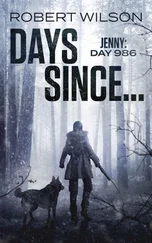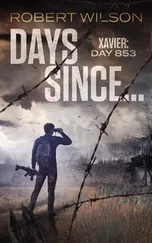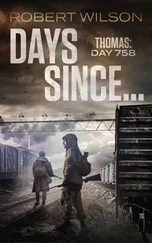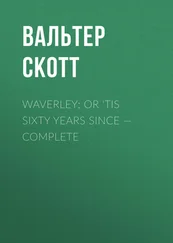Morgan Nyberg
SINCE TOMORROW
A Novel
They stopped — the three wagons and their drivers, the guards, the four dogs — at the cusp of the bridge. Already the noise of the market reached them. Shouts. Shrieking. The workhorse that was harnessed to the lead wagon turned its head and looked back at the driver. Noor said to it “No, we’re goin’. You know damn well we’re goin’.” She set her mouth and twitched the reins and gripped the handbrake. They started down the long slope of Frost’s Bridge.
Dunsmuir, Airport and Lansdowne were guarding the Town end of the bridge with three dogs. Lansdowne was requesting a little toll from an old man who had a plastic basin full of knobby carrots. Noor stopped the wagon. “Aren’t you Jacob?” she said to the man.
“That’s me. I know you, Noor. I know your grampa.” He did not have any teeth.
The guards hauled the dogs out of the way and the other wagons passed. These wagons were smaller, and each was pulled by a Holstein steer.
“You’re from South, aren’t you?” Noor said.
“I was a long time ago, but I moved across. Too hard to get into Town, tradin’ to cross on the raft every time. I’m this side of the South Arm now.”
“Alone?”
He nodded.
She said “Come to Frost’s. We’ll make a place for you.”
He waited, then said “I can’t think of any reason not to. Except that I’m too stupid and I’m too stubborn.” He produced a squeaking laugh. “Tell your grampa you saw me.”
Noor smiled and said to Lansdowne “Let him pass.”
At the foot of the bridge they swung left and hooked back toward the river. They followed a wide trail between a few decrepit three-storey apartment buildings, among overgrown foundations, among humped ruins covered by blackberry and across the weedy asphalt remains of streets. There was a smell of human excrement. Town smell. A few people ran or limped toward the Frost wagons, flourishing their loot.
The market sprawled along the bank of the river, nothing but a mess of people hollering at one another and waving lengths of electrical wiring or a sleeve of a red coat or a rusty can of forty-year-old soup or whatever else they had managed to strip from the corpse of the city. The guards took a tighter grip on the leashes of the dogs, who added their nervous whines and yelps to the general melee. The party found a place for the wagons at the lip of the riverbank.
The boat of the Park Crew was tied at the river’s edge with a load of cordwood. Noor gazed across the river as she filled a bucket with spuds. In the water near the far bank stood two high piles of stones. On the bank itself lay Daniel Charlie’s half-built water wheel. Beyond rose the concrete storeys of her home, “the domicile” as her grandfather called it, leaning toward the river at a dangerous slant. Between the market and Frost’s Farm the late morning tide surged up the north arm of the river.
The crowd was forced to stay back a few paces on account of the dogs. People carved out personal space with curses and slashing elbows while still managing to advertise a shoelace or a six-inch bolt complete with nut, or even some Town-grown vegetables, calling in their ragged Town voices “Lookit. Lookit what I got.” The drivers, Marpole and Hastings, each beckoned someone forward and set to haggling. The owner of the six-inch bolt went away with thirty potatoes.
Noor held the bucket with her left hand and with her right took the leash of Puppy from one of the guards and headed cautiously into the throng. She let the bucket rest against the sword in her belt, so as not to injure those she passed. Behind her a one-legged woman with a crutch made from a chunk of black plastic pipe bartered an eight-foot length of eaves-trough and went away with enough food for two weeks.
Lookit. Lookit what I got.
Ten feet of garden hose bought a week of root starch.
A dozen matches bought a month’s worth.
Now there was something new for Noor to smell: the dull stench of bodies long unwashed. Puppy lifted her head, snuffing it in keenly. They wore ponchos of rough grey wool and nothing else, these Town people, if they were lucky enough to have come by the wool. Or they wore patchwork robes of whatever could be stitched, tied or pinned together: bits of wool, bits of old shirts, bigger bits of black, white or transparent polyethylene. If they wore shoes the shoes were makeshift, poly wraparound, every variety of bendable plastic, sponge rubber. They leaned over the dog and shouted “Lookit. Lookit here.” A dirty sheet of foolscap. The handle of a table knife. Styrofoam cups beyond counting, some of them whole. A wizened and scabbed apple.
Noor stopped, allowed the apple to be placed in her bucket, allowed three potatoes to be removed, nodded, went on. Noor’s sandals were tire tread soles with leather straps. Her top was a patched and colourless flannel shirt with no sleeves, her bottom shapeless canvas trousers secured at the waist with yellow nylon twine. A way opened for the tall woman and the animal. Someone held up a shard of mirror. Lookit. For a second Noor saw what these others saw. Hair dark and tied back. Eyes green. Cinnamon skin. A long neck. The calm and imperious features of an Arab princess.
She traded for a pair of large hard zucchini, then traded the zucchini and some spuds for a thin book, Principles of War by Carl von Clausewitz. It was almost intact, missing only the back cover and part of the front one. The deck of the bridge was above her now. Nearby, screams erupted and there was a thrashing of plastic, and two women grappled and bit and spat and rolled among feet on the hard-packed earth. The hair on Puppy’s back stood on end. Noor stepped away.
A man was selling fire-makers. He sat cross-legged behind a tidy pile of his devices. He was prosperous enough to own a sword, the uneven blade of which he rested on his pyramid of merchandise. When people squatted down to trade he generally shook his head. He was maybe fifty, bearded and long-haired like the other men, but cleaner. He wore a leather bomber jacket, whole, mostly colourless but still black across the shoulders, and trousers made from varicoloured cloth. Noor had not seen him before. She said “How’s business?”
“If someone would come up with somethin’ worth tradin’ for it would be fine. Could you use a fire-maker?”
“We make our own. Come and visit us. We’re the other side of the bridge. Tell the guards you’re a friend of Noor’s.”
“I will. My name is Kits.” He scratched Puppy behind the ear. The dog licked his hand.
Noor went on. She saw Town Ranch trading their wool. She saw Wing in the distance, with guards and a wagon. Suddenly Puppy growled. The bucket was jerked from Noor’s grip. She gave a cry, stumbled sideways and let go of the leash. When she found her balance she drew her sword but the thief was already on his back, with Puppy’s forepaws on his chest, and her bared teeth and curled lip four inches from his eyes, which he closed carefully.
The bucket had spilled, but no one tried to snatch the rolling potatoes. Noor gathered them as Puppy continued to snarl into the face of the thief. She found the book but could not spot the apple. A boy came forward with it. “Thanks” said Noor. “What’s your name?” The boy said nothing. “Who’s your dad? Which side of the bridge do you live on?” He started to back away. “Here” she said. “You keep it.” The boy ran off to find a safe place to eat the apple.
“Enough now, Puppy.” Noor pulled the dog off the man’s chest, but Puppy continued to glare at him, not blinking, still. The man opened his eyes, waited, scraped away on his back, slow as a snail. “Don’t come back here again” said Noor. He got up and ran. People kicked out at him as he dodged through the crowd. If they were holding something hard, a plastic bowl, a car aerial, they tried to hit him with it.
Читать дальше
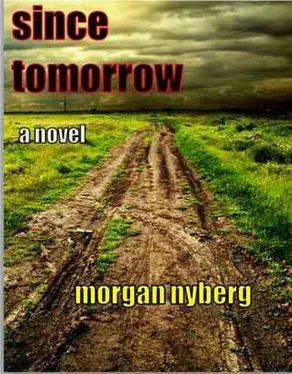
![Деннис Лихэйн - Когда под ногами бездна [Since We Fell ru]](/books/25722/dennis-lihejn-kogda-pod-nogami-bezdna-since-we-fe-thumb.webp)





